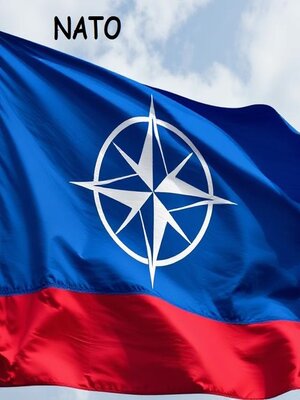
Sign up to save your library
With an OverDrive account, you can save your favorite libraries for at-a-glance information about availability. Find out more about OverDrive accounts.
Find this title in Libby, the library reading app by OverDrive.



Search for a digital library with this title
Title found at these libraries:
| Library Name | Distance |
|---|---|
| Loading... |
What is NATO?
NATO (North Atlantic Treaty Organization) is a military alliance of 31 countries from North America and Europe. It was founded on April 4, 1949, with the signing of the North Atlantic Treaty (Washington Treaty). The organization was created to promote mutual defense and security among its members, primarily as a response to the growing influence of the Soviet Union after World War II.
Key Facts About NATO
Full Name: North Atlantic Treaty Organization
Established: April 4, 1949
Current Members: 31 countries (as of 2024)
Headquarters: Brussels, Belgium
Official Languages: English & French
Secretary-General (2024): Jens Stoltenberg
Main Purpose of NATO
NATO is based on the principle of collective defense, which means that an attack on one member is considered an attack on all members. This is outlined in Article 5 of the NATO treaty, which has only been invoked once—after the September 11, 2001, terrorist attacks on the United States.
NATO's Core Tasks
Collective Defense – Protecting members against military threats.
Crisis Management – Addressing conflicts before they escalate.
Cooperative Security – Working with non-member countries to enhance global security.
Who Are NATO's Members?
NATO started with 12 founding members and has expanded over time. The current members include:
🇺🇸 United States | 🇬🇧 United Kingdom | 🇨🇦 Canada | 🇫🇷 France | 🇩🇪 Germany | 🇮🇹 Italy | 🇪🇸 Spain | 🇵🇱 Poland | 🇹🇷 Turkey | 🇳🇴 Norway | 🇸🇪 Sweden (Joined in 2024) and others.
The most recent members:
Finland (2023)
Sweden (2024)
How NATO Works
Political & Military Alliance: NATO makes decisions through discussions among all members, each having an equal say.
Defense Spending: Members commit to spending at least 2% of their GDP on defense.
Joint Military Operations: NATO conducts exercises, peacekeeping missions, and disaster response efforts worldwide.
Notable NATO Operations
Kosovo (1999): NATO led airstrikes to stop ethnic cleansing.
Afghanistan (2001-2021): NATO deployed troops after 9/11.
Libya (2011): NATO enforced a no-fly zone during the civil war.
NATO vs. Russia
Since the Cold War, NATO has been seen as a counterbalance to Russia.
Ukraine Conflict (2022-Present): NATO has supported Ukraine with weapons and training but has not directly joined the war.
Expansion Concerns: Russia strongly opposes NATO's expansion, seeing it as a threat to its security.
Conclusion
NATO remains one of the most powerful and influential military alliances in the world. It continues to evolve to address modern threats, including cyber warfare, terrorism, and geopolitical tensions with countries like Russia and China.







